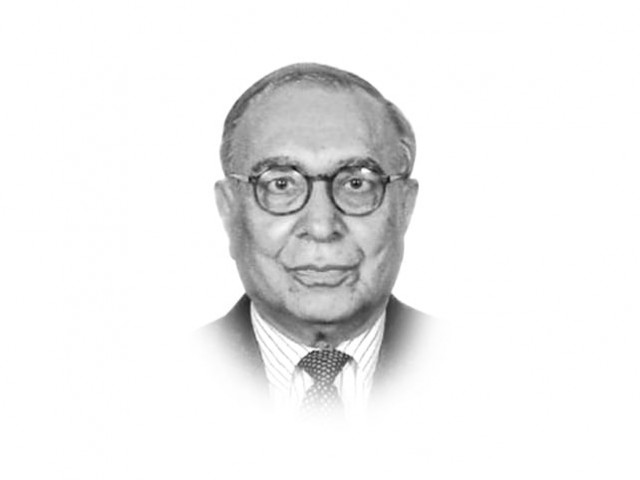Making sense of Libya and Bahrain
The GCC commitment to Bahrain’s stability may strengthen elements in the opposition, thus promote a peaceful...

In Libya, the ‘Arab spring’ has had a distinctive hue of its own. The uprising in eastern Libya was, from the beginning, an armed revolt aimed at bringing down Muammar Qaddafi. Very early on, it sought a no-fly zone to neutralise his military advantage. The western media and then the western governments quickly built up a grim narrative of Qaddafi brutalising his own people. After initial hesitation, US President Obama and most European leaders demanded that he steps down forthwith. The ‘international community’ was never prepared to countenance the defeat of the rebel National Council, a parallel government in eastern Libya. French President Sarkozy, who wants to project Paris as a bastion of western power, was the first to recognise this Council and France carried out the first air strike against a Libyan target. Britain and the United States followed with a crippling rain of Tomahawk cruise missiles on the night of March 19.
The overzealous western interest in the Libyan crisis, doubtless, belongs partially to the saga of oil, blood and sand. Libya has about 3.5 per cent of global oil reserves; its proven reserves stand at 46.5 billion barrels. Many western analysts concede that the present military campaign aims at controlling, Iraq-style, the production, distribution and pricing of Libyan oil. The western rapprochement with Qaddafi began in 2003, when he brought back western oil companies and ended abruptly when the otherwise fawning European politicians saw in the uprising a unique opportunity to overthrow him.
There is no gainsaying that Qaddafi’s defiant response to the initial protest precipitated the civil war that opened the door to ‘humanitarian intervention’. The Libyan crisis was shaped by Muammar Qaddafi’s unusual personality, rivalries of the three major tribes, including his own, and his brand of democracy which subordinated a modern nation state to the culture of a mega tribe, of which he was the chief. He had achieved much, including a per capita income of $12,000 for his people but, tethered to his unique philosophy, the Libyan state remained in denial of the new forces emerging in a rapidly urbanising society.
The broad terms of the UN resolution authorizing the use of force to ‘protect’ the people are being implemented as a mandate to destroy the Qaddafi regime. Western air power is already decimating his command and control centres and other military installations; one can only hope that the economic infrastructure survives. This may enable the ‘rebels’ to recover the towns recently lost to Qaddafi loyalists and make a bid for the capital. The ‘unintended consequence’ would be that Libya is left with tribal guerilla formations engaged in a protracted nightmarish conflict across a vast land.
Bahrain is a small island endowed with enormous geopolitical importance. Political developments in it can alter the regional balance of forces. It is home to the US Fifth Fleet that projects power over a huge body of water. Bahrain’s main fault line is supposed to be a tussle between a Shia majority and the Sunni ruling alKhalifa family. This is an oversimplification, as opposition parties such as al Wefaq traditionally seek redistribution of power between the monarchy and parliament. In fact, King Hamad bin Isa alKhalifa began his reign by bringing a healing touch to the sectarian tendencies that marred politics in the 1990s. Crown Prince Sheik Salman bin Hamad alKhalifa is a strong voice today for further reforms. However, in economic terms, Shia villages need to be mainstreamed into Manama’s prosperity. Political parties, assorted intellectuals, lawyers and youth called for a demonstration on February 14, ostensibly to celebrate Bahrain’s National Action Charter, and the king did not object. They upped the ante by turning the landmark Pearl Roundabout of Manama into a local Tahrir Square, an enduring encampment. The majority still spoke of constitutional monarchy but some extremists from the Shia party Wafa, Haq and the left-leaning Sunni Waad parties, tried to inject republicanism into the movement. On February 17, four persons died during a night-time operation by the security forces to disperse the Pearl Roundabout camp. Persistent efforts to revive it resulted in the demolition of this landmark by the security forces on March 18. The United States has continued to play up the Iranian threat to the region. Recently, it concluded agreements for military sales worth $123 billion with Saudi Arabia, UAE, Kuwait and Oman. These contracts include 84 F-15 jets, 70 Apache gunships and 72 Blackhawk helicopters. US Defence Secretary Gates and Admiral Mullen visited Bahrain during the recent unrest and ‘sources’ revealed that there was ‘much talk about Iran’. The fact of the matter is that only a miniscule section in Bahrain’s Shia population is interested in Iran’s political influence. Arguably, Iran would welcome a shift of power to the Shia majority if Bahrain becomes a constitutional monarchy; it will be consistent with Iranian policy towards Iraq and Lebanon. There is, however, little evidence of Iran’s interference in the current political strife. Against this backdrop of internal and external factors, the GCC acted on March 14 with a Saudi contingent turning the spectacular King Fahd Causeway into a strategic highway. The next day, the king declared emergency for three months though he has since reiterated his resolve to continue reforms. The GCC commitment to Bahrain’s stability may strengthen moderate elements in the opposition and thus promote a peaceful solution. This could help Bahrain avoid the instability that seems to be Libya’s fate at present.
Published in The Express Tribune, March 22nd, 2011.














COMMENTS
Comments are moderated and generally will be posted if they are on-topic and not abusive.
For more information, please see our Comments FAQ